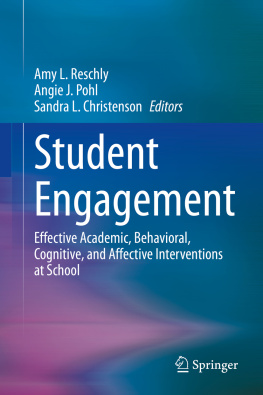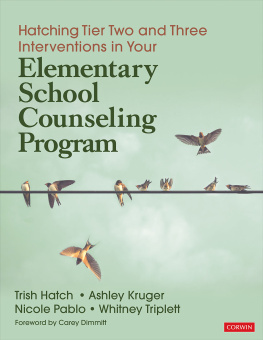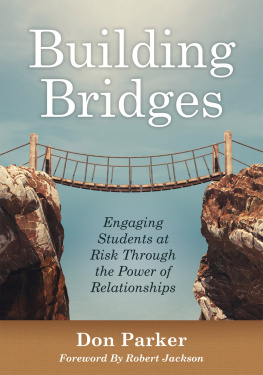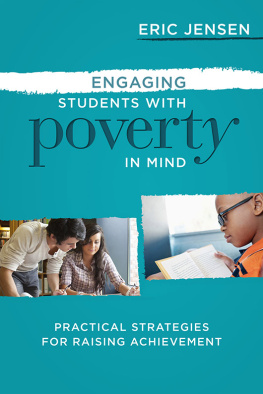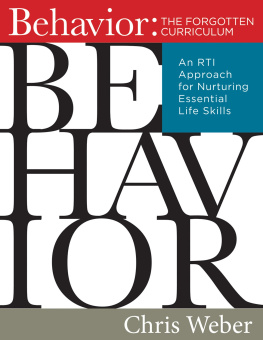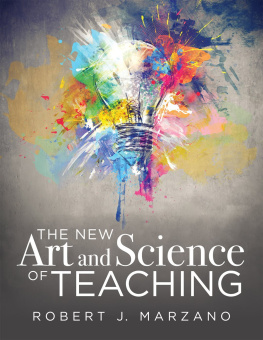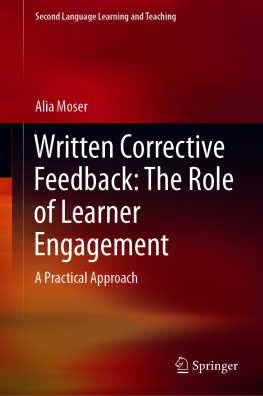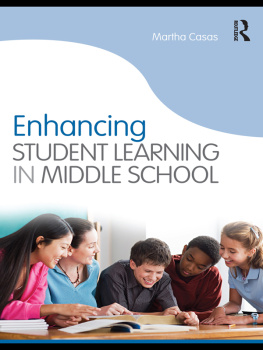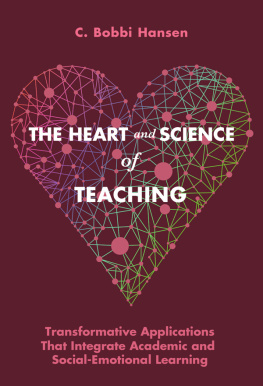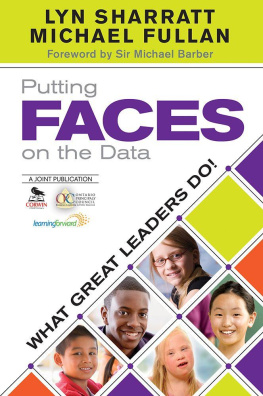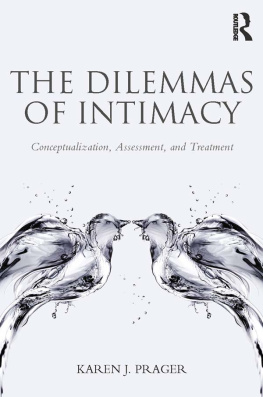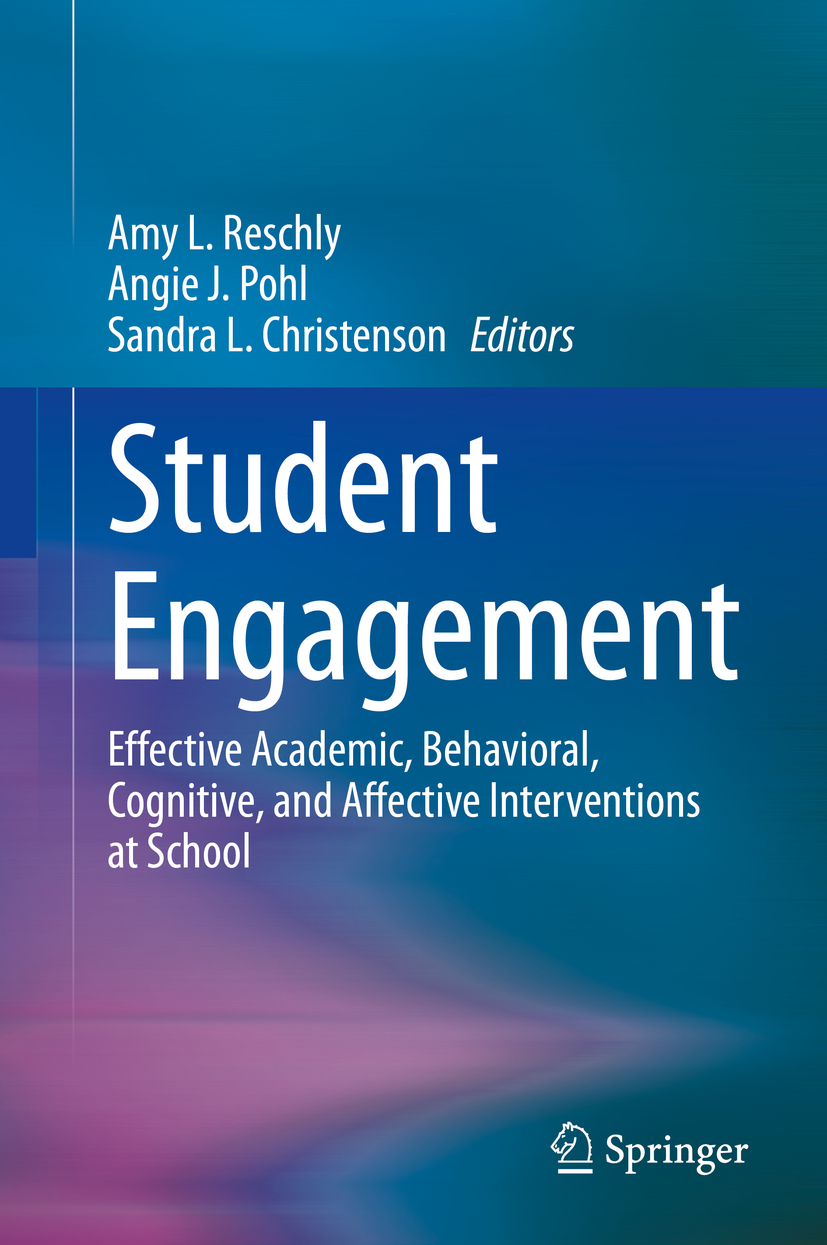Editors
Amy L. Reschly
Department of Educational Psychology, University of Georgia, Athens, GA, USA
Angie J. Pohl
Burnsville-Eagan-Savage School District, Burnsville, MN, USA
Sandra L. Christenson
Department of Educational Psychology, University of Minnesota, Minneapolis, MN, USA
ISBN 978-3-030-37284-2 e-ISBN 978-3-030-37285-9
https://doi.org/10.1007/978-3-030-37285-9
Springer Nature Switzerland AG 2020
This work is subject to copyright. All rights are reserved by the Publisher, whether the whole or part of the material is concerned, specifically the rights of translation, reprinting, reuse of illustrations, recitation, broadcasting, reproduction on microfilms or in any other physical way, and transmission or information storage and retrieval, electronic adaptation, computer software, or by similar or dissimilar methodology now known or hereafter developed.
The use of general descriptive names, registered names, trademarks, service marks, etc. in this publication does not imply, even in the absence of a specific statement, that such names are exempt from the relevant protective laws and regulations and therefore free for general use.
The publisher, the authors, and the editors are safe to assume that the advice and information in this book are believed to be true and accurate at the date of publication. Neither the publisher nor the authors or the editors give a warranty, expressed or implied, with respect to the material contained herein or for any errors or omissions that may have been made. The publisher remains neutral with regard to jurisdictional claims in published maps and institutional affiliations.
This Springer imprint is published by the registered company Springer Nature Switzerland AG
The registered company address is: Gewerbestrasse 11, 6330 Cham, Switzerland
Preface
The aims of this book are to (a) highlight the engagement subtypes that undergird Check & Connect and (b) identify scientifically based interventions that facilitate student engagement subtypes. The power and value of both individual and universal interventions designed to promote student engagement subtypes are featured in this book. We have included excellent descriptions of these interventions, which are authored by the program developers.
We have organized the book around research from Check & Connect, which began with initial funding from the US Department of Education, Office of Special Education Programs, in 1990 awarded to Drs. Bruininks, Thurlow, and Christenson, University of Minnesota researchers. The purpose of the 5-year funding was to develop, evaluate, and refine a dropout prevention intervention for middle school students with learning and behavioral disabilities. Dropout rates were increasing; however, they were due primarily to the increase in dropout for special education students, hence, the request for the grant proposal from the federal government. We like to say that Check & Connect was born in 1995.
A principle of Check & Connect has been to use empirically based interventions to connect students at school and with their learning. There has never been discouragement for using interventions designed by others that foster or enhance students academic, behavioral, cognitive, or affective engagement. Rather, school personnel have been encouraged to implement or create interventions that fit their school context. The key to this, however, is that interventions are implemented with integrity and evaluated for effectiveness within that context. The impetus for action has always been to do what is necessary to engage disengaged learners at this school, with these professionals, with these parents, and with this student population. Across time and several large-scale interventions in urban schools, we established that context matters.
Over the years, our work expanded to underscore student engagement as a multidimensional construct with relevance for all youth. This focus included the development of the Student Engagement Instrument (SEI) (see Chap.), reinforcing the seminal role of understanding student perspectives. We were not interested in only describing characteristics or levels of students academic, behavioral, cognitive, or affective engagement because doing so leaves too many students at risk for negative educational outcomes. Rather, our purpose was to create an assessment-to-intervention link.
A final note is our belief that we began this work right. In the development of Check & Connect, we worked collaboratively with special education personnel from the Minneapolis Public Schools to solve an authentic educational concern. We learned that the powerful effect of both researcher and practitioner input science and practice for the design of Check & Connect, as well as the ongoing interest of educators in the assessment of and for intervention in students level of engagement, cannot be ignored. Additionally, the editors of this book have been closely associated with Check & Connect research in multiple roles, as mentors, trainers, and researchers. We hope this compilation of interventions organized by the four engagement subtypes proves beneficial to you and your colleagues.
Amy L. Reschly
Angie J. Pohl
Sandra L. Christenson
Athens, GA, USA Burnsville, MN, USA Minneapolis, MN, USA

